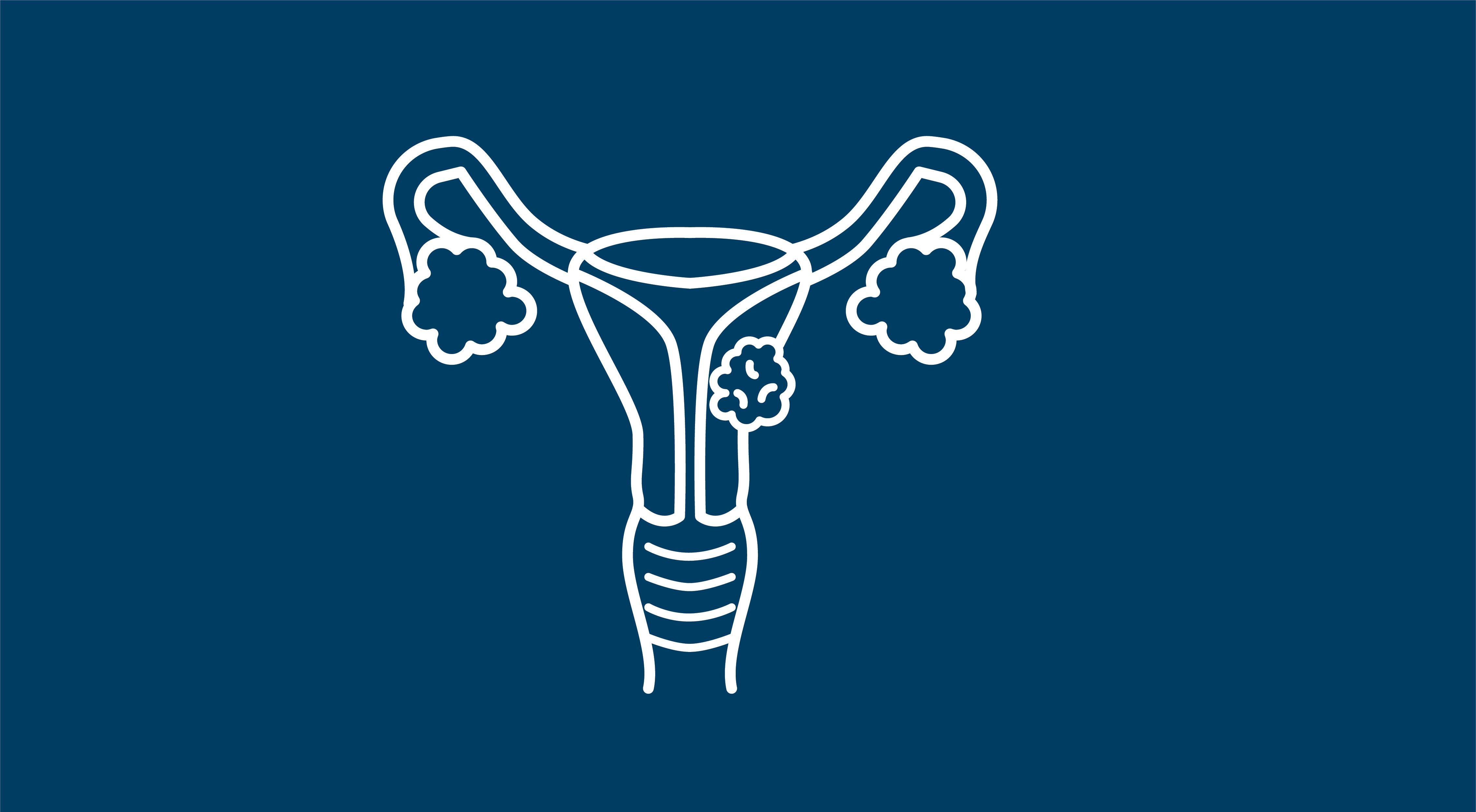Olaparib Dosage Can Be Reduced Without Affecting Survival in Ovarian Cancer
New research suggests that olaparib treatment interruption or dosage reduction is not linked with inferior survival outcomes in patients with BRCA1/2–mutated, platinum-sensitive, recurrent ovarian cancer.
Olaparib Dosage Can Be Reduced Without Affecting Survival in Ovarian Cancer

Patients with BRCA1/–mutated, platinum-sensitive, recurrent ovarian cancer who needed to reduce or interrupt treatment with olaparib during their first 12 weeks of treatment did not experience worse survival outcomes compared with those who received the recommended dose, according to ancillary findings from the SOLO2 study (NCT01874353). These data suggest that patients who need to alter their treatment with the PARP inhibitor because of adverse events (AEs) will not be negatively affected.1,2
The findings, which were published in the Annals of Oncology, demonstrated that median overall survival (OS) rates were consistent across different dosages.
Relative dose intensity (RDI) represented the administered dosage compared with the recommended standard dose during the first 12 weeks of treatment, which is 30 mg twice a day. Investigators categorized participants as RDA greater than 98%, RDI 90% to 98%, and RDI less than 90%. After 12 weeks of olaparib, the mean 12-week RDI was 91.4%.
Furthermore, the median OS, following 12 weeks of olaparib, was 49.7 months in the greater than 98% group, 49.5% in the 90% to 98% group, and 54.1 months in the less than 90% group (P = .84). The median PFS was 14.2 months, 49.5 months, and 54.1 months, respectively (P = .37).
Moreover, patients were at an increased risk of requiring a dosage less than 90% of the recommended dose if they exhibited a baseline performance status of 1 (odds ratio [OR], 2.54; 95% CI, 1.11-5.82), any nausea (OR, 3.17; 95% CI, 0.9-11.23), or had a body weight of 70 kg or lower (OR, 1.86; 95% CI, 0.92-3.76).
The international, multicenter, double-blind, randomized, placebo-controlled, phase 3 SOLO2 trial enrolled patients with platinum-sensitive, relapsed ovarian cancer patients whose disease harbored a BRCA1/2 mutation and who had been pretreated with at least 2 lines of previous chemotherapy. Patients were randomized to receive either maintenance olaparib (300 mg in two 150 mg tablets twice daily) or placebo. The trial revealed that olaparib yielded significantly longer PFS than placebo (19.1 vs 5.5 months, respectively), meeting its primary endpoint (HR, 0.30; 95% CI, 0.22-0.41; P <.0001).3
Because maintenance therapy is a long-term therapy, it is often associated with necessary alterations to mitigate potential AEs, the authors noted. Investigators analyzed data from SOLO2 to determine the impact of treatment interruptions or reductions on survival outcomes as well as to reveal which characteristics were linked with treatment alteration.
Throughout the SOLO2 study, AEs caused 50% of patients to interrupt treatment, 28% of patients to reduce their dosage, and 17% of patients to discontinue treatment. There were 110 patients in the RDI greater than 98% category, 29 patients in the RDI 90% to 98% category, and 45 patients in the RDI less than 90% category.
The association between RDI categories with progression-free survival (PFS) and overall survival (OS) were examined using a 12-week landmark Cox regression analysis. Logistic regression analysis was used to correlate baseline factors with RDI at 12 weeks.
References
- No impact on survival from dose reduction and interruption for the management of olaparib associated adverse events. ESMO. News release. March 8, 2022. Accessed April 4, 2022. https://bit.ly/3NMOiWr
- Francis KE, Kim SI, Friedlander M, et al. The impact of olaparib dose reduction and treatment interruption on treatment outcome in the SOLO2/ENGOT-ov21 platinum-sensitive recurrent ovarian cancer. Ann Oncol. 2022;S0923-7534(22)00338-6. doi:10.1016/j.annonc.2022.02.222.
- Pujade-Lauraine E, Ledermann JA, Selle F, et al. Olaparib tablets as maintenance therapy in patients with platinum-sensitive, relapsed ovarian cancer and a BRCA1/2 mutation (SOLO2/ENGOT-Ov21): a double-blind, randomized, placebo-controlled, phase 3 trial [published correction appears in Lancet Oncol. 2017;18(9):e510]. Lancet Oncol. 2017;18(9):1274-1284. doi:10.1016/S1470-2045(17)30469-2



